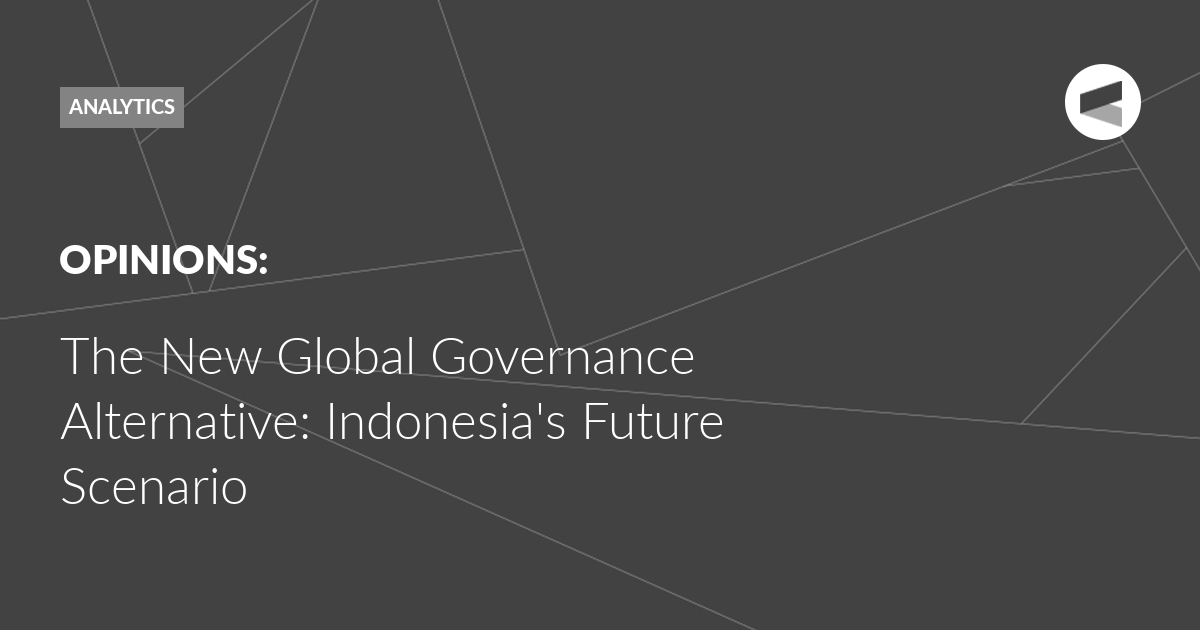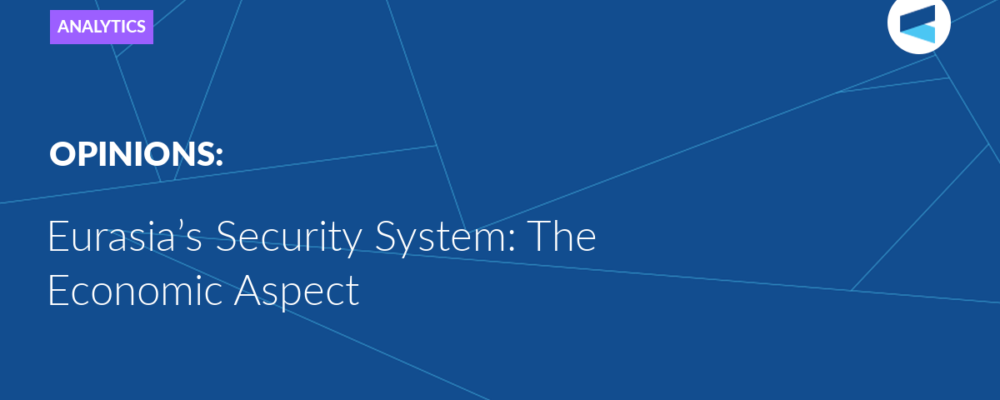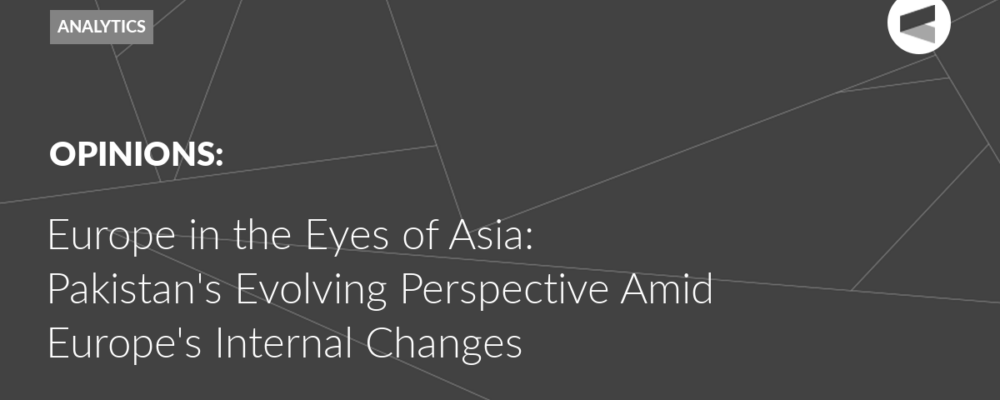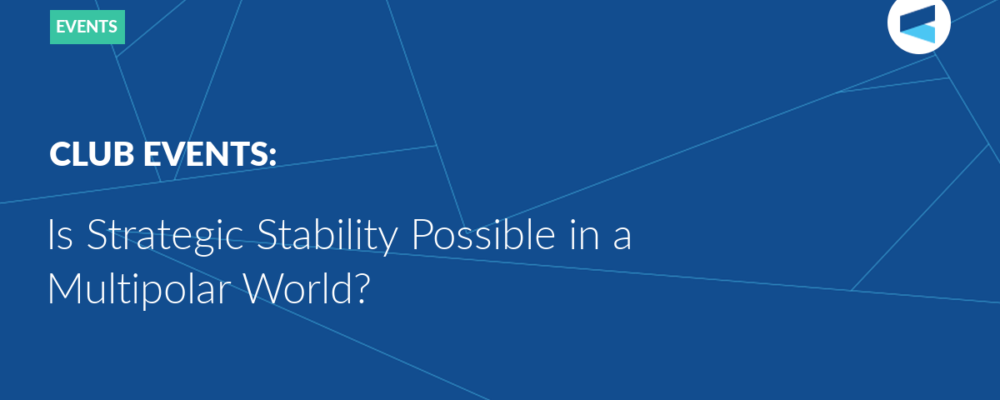It is critical to consider Indonesia’s new governance agenda under the Prabowo administration and its course of action as the world order shifts from unipolarity to multipolarity. First, Indonesia’s foreign policy is being reframed as ‘free and active.’ This term, in the context of global dynamics, signifies a pragmatic strategy, write Sellita and Joko Susilo. The authors is a participants of the Valdai – New Generation project.
It allows Indonesia to maintain independence in decision-making while actively participating in international events. This approach is particularly relevant for a large, strategically positioned Southeast Asian country with a booming economy like Indonesia, as it faces significant opportunities to influence regional and global affairs.
The evolution of the world order has mainly depended on countries’ roles beyond their borders and their approaches to global governance. The evolution of this has primarily depended on two main driving factors: nation-states play an active or passive role beyond their borders, and nation-states seek universality or a diversity of ideas for global governance (Valdai Club Discussion Report, 2024). Amid all the diversity of political interests and the diversification of ideologies, the active role of every country, including Indonesia, is crucial. This reality has also marked a paradigm shift from unipolarity to multipolarity in the new global order. This has the same nuance as the fundamental principles of Indonesian diplomacy.
This framework has placed the future of global governance into four main quadrants (Valdai Discussion Club Report, 2024), namely: (1) The ‘Disorder Scenario’ occurs when there is ideological diversification, but nation-states are passive; (2) The ‘Global Empire Scenario’ occurs when there is ideological universalism, but nation-states are passive; (3) a ‘Multipolarity Scenario’ occurs when nation-states are active, but there is ideological diversification, and (4) a ‘Bipolar World and ‘Non-Aligned Movement Scenario’ occurs when nation-states are active with ideological universalization. How, then, do we see the future of Indonesia in each of these scenarios? What is possible and impossible under these conditions? What should be done to meet challenges and achieve Indonesia’s national policy priorities, including mitigating unintended consequences? What are the resource requirements? Who are the parties/actors that should be involved, and what are their roles? What are the indicators of success in each of these conditions? These essential questions must be answered to ensure Indonesia’s future in the new global governance alternative.
Disorder Scenario. The notion of being a passive nation-state is unheard of in Indonesia. However, under the current Prabowo administration, a state sovereignty narrative can lead to protective policies in specific sectors such as food and MSMEs. This scenario is relatively proportional; it is implemented to protect the nation’s main economic base and vulnerable groups. On the other hand, Indonesia’s ethical and cultural diversity affects values and makes the country adaptive to the diverse array of global ideologies. On the other hand, the policies of Suharto’s Old Order government, which was very closely aligned with the West, left regulations prohibiting Marxism, Socialism, and Communism, which still exist today. This government policy of banning certain ideologies has had implications for formal democracy in Indonesia, resulting in an array of political parties that do not reflect a clear political-economic spectrum. This has resulted in debates that are stuck in a tug-of-war between nationalism and religiosity, and technical programme implications that are often biased in favour of the working class, the state, and the market – a phenomenon of the oligarchy that has undermined Indonesia’s current national policies. Prabowo’s military-backed government and an electoral process deemed to violate constitutional ethics are also predicted to bring Indonesia’s future to a dual state, where civil society and democracy remain weak vis-à-vis an authoritarian government and less accountable governance. This ‘dual state’ scenario could potentially lead to a power struggle between the government and civil society, undermining democratic principles and accountability in governance.
Global Empire Scenario. A combination of political shifts, economic prosperity, and strategic alliances has propelled Indonesia into a position where it is becoming a regional and potentially global empire. To put things in a historical context, Indonesia’s journey to becoming a global empire starts with key developments. By 2024, Indonesia had become became Southeast Asia’s largest economy and the 10th largest in the world. Its economic policies, driven by visionary leadership, focused on building high-tech industries, infrastructure, and renewable energy sectors, which made it a global economic power. Following decades of democratic consolidation and political reform in the early 21st century, Indonesia managed to avoid the instability that has plagued many other nations in the region. During geopolitical shifts, Indonesia’s regional security, trade, and diplomacy leadership positioned it as a rival and, in some cases, an alternative to China’s growing influence in the region. Nevertheless, Indonesia’s most significant obstacle is improving domestic conditions following the transition from the Jokowi to the Prabowo Administration. Harmony between foreign and domestic policies is ultimately necessary. Another factor to consider is that Indonesia continues to struggle with domestic problems, including economic disparity, corruption, infrastructural and urban issues, problems with the educational system, and so forth. Indonesia must solve its current issues and begin with decent governance. Under the Prabowo administration, Indonesia is taking a significant stride toward becoming a global power supported by its foreign policy of being ‘free and active,’ particularly in Southeast Asia.
Multipolarity Scenario. History records that Indonesia has practically implemented a multipolar approach, for example, when initiating the Asia-Africa Conference and ASEAN. Today, with the correct policies, investments, and institutional changes, Indonesia can achieve the goal of 8% economic expansion over the next five years by promoting a system that is more sensitive to the demands of emerging economies and places a higher priority on social justice, sustainability, and equitable development. Indonesia assumes a leading position in rethinking the governance of the global economy. This can be accomplished by applying a new paradigm of economic governance to the emergence of global economic power. Indonesia is at the forefront of rethinking global financial organisations such as the World Bank and IMF to reflect the economic realities of developing countries better. Collaborating with BRICS as a partner can help the country meet its economic expansion goals.
Bipolar World and Non-Aligned Movement Scenario. Given that Indonesia is ‘free and active,’ it has embraced a vivid atmosphere for both bilateral and multilateral cooperation. First, Indonesia’s involvement in ASEAN will be significantly impacted by the issues it faces today and will face in the near future. Indonesia’s leadership has continuously defended ASEAN’s significance in the regional framework. This is consistent with ASEAN economic integration. Indonesia might embrace free trade agreements with ASEAN and other partners, such as the Regional Comprehensive Economic Partnership (RCEP), to strengthen regional economic integration. Second, it enjoys balanced relations with major powers. It has maintained neutrality and avoided being aligned (with the US, China, India, Russia, and other key powers). Indonesia could seek closer security cooperation with the US while maintaining a strong economic and diplomatic relationship with China. Engagement with India and Russia can be done through shared values and growing regional influence, such as defence cooperation and maritime security. Indonesia can bridge the Global North and South to promote a multilateral framework. At this stage, the voices from the Global South are equally represented in decision-making processes.
Another consideration in the security and defence sector is the case of navigating Indonesia’s foreign policy. Indonesia faces a new challenge while promoting peace and stability in the Indo-Pacific region. The country plays a key role in maintaining freedom of navigation in the Indo-Pacific, particularly in the South China Sea. This includes advocating for the peaceful resolution of maritime disputes and opposing coercive actions in the region. Meanwhile, Indonesia’s peacekeeping and conflict mediation leadership has had a positive influence. Throughout history, Indonesia has maintained its neutrality in several foreign conflicts, including the rivalry between the Philippines and the Moro National Liberation Front (MNLF), the territorial dispute between Malaysia and the Philippines over Sabah, the conflict in Thailand, and the boundary disputes between Cambodia and the Philippines. Indonesia could seek to enhance its defence partnerships with regional and global powers.
Every scenario has implications and consequences—every political choice will always have a technocratic impact that must be adjusted within the Indonesian national bureaucracy, work programmes, and vice versa. Every technocratic decision in the Indonesian national government will have implications for political matters in the orientation of global governance. Everything is subject to compromise and mutual influence. In light of the current conditions and the Indonesian government’s pragmatic approach, decision-making reflects the Non-Aligned Movement Scenario and the Multipolarity Scenario. Under both scenarios, Indonesia will remain flexible to align with its national interests.
Indonesia stands at a crossroads, with opportunities and challenges in its quest for future global governance. The delicate balance between domestic interests and international pressures drives this dynamic, showcasing Indonesia’s strong commitment to a free and independent foreign policy that supports its national development goals. Ultimately, navigating these complexities requires a focus on pragmatism and informed decision-making, ensuring that Indonesia can thrive on the world stage.
The Valdai Discussion Club was established in 2004. It is named after Lake Valdai, which is located close to Veliky Novgorod, where the Club’s first meeting took place.
Please visit the firm link to site






